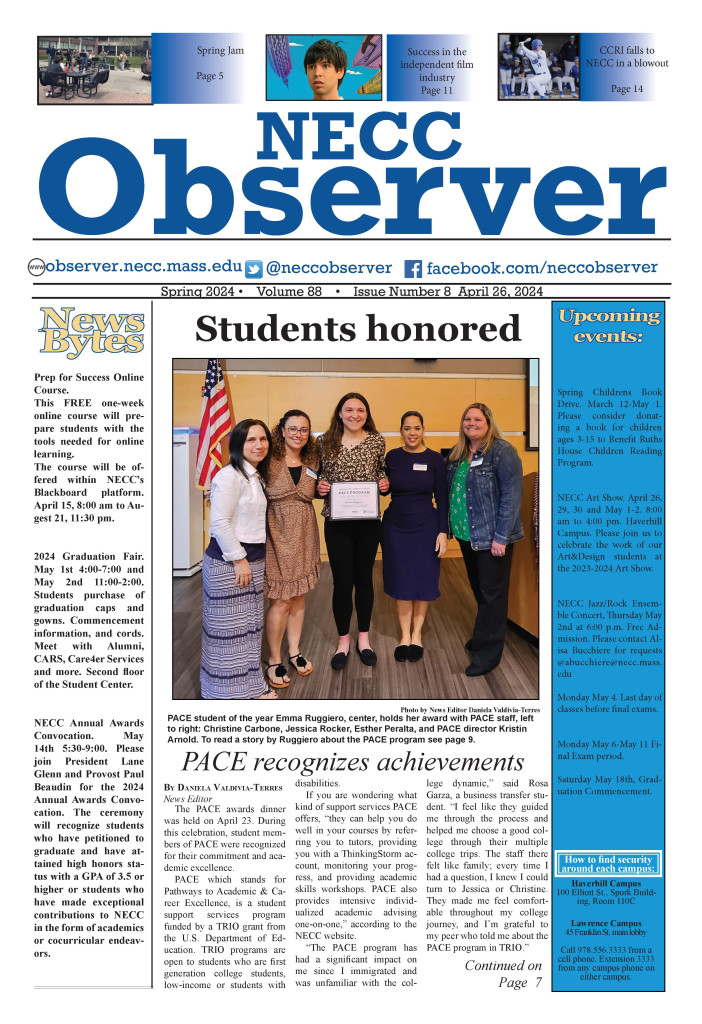
When choosing what college to attend for the next 4 years of life, it can be quite a daunting task.
It feels like you’re being pulled in so many different directions, with this college offering these benefits, or this college giving out those hefty scholarships.
But when it comes down to the ultimate choice, what really matters to students? While going to university offers the “college experience,” many overlook the multiple benefits going to a community college has to offer, especially in the long run.
While community college mainly offers a 2-year degree program, the plethora of jobs one can still get without a bachelor’s degree is immense.
These jobs include research developers, becoming a registered nurse, and becoming an editor.
Most jobs even offer to pay for students to continue their education!
According to the Northern Essex Community College website, the college offers 14 areas of study with over 60 associate degrees to choose from, ranging from marketing and business, art and design, or healthcare.
These degrees cover a large area of work study and will provide students with a comforting level of security in finding future jobs.
An additional benefit on opting to attend a community college is cost, which is one of the biggest factors students take into consideration when choosing a school.
On the NECC website, there is a huge section all about cost, and how the college will help students graduate at an affordable rate. At NECC, over 65% of students receive financial aid, and a typical course costs right about $750, while similar courses at a 4-year university cost around the $1,000 marker, or more depending on the school.
By choosing to attend a community college, students can save thousands of dollars on tuition, textbooks, and even laptops through the NECC laptop program.
One of the more major things students look for when attending a college is the social aspect of the school, and what student life is like on campus.
Students look for what kinds of activities the school holds, how engaging students are with one another, and what kinds of involvement students are allowed to participate in.
Despite being a community college, NECC has so many clubs, organizations, and resources that are continuously offered to incoming students.
NECC allows students the opportunity to become a member of the student government association, use any library resources needed, and utilize the campus-wide wellness and fitness center.
The options are endless when it comes to becoming an involved member on campus!

